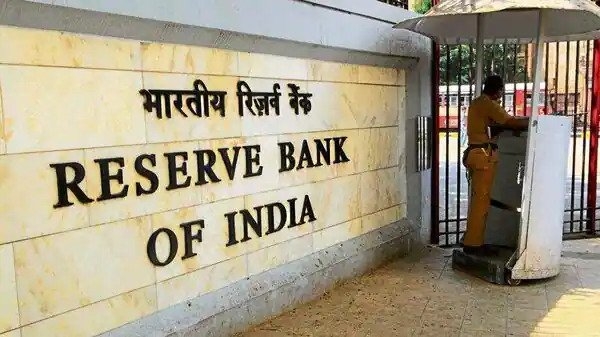RBI extends deadline for new bank locker agreement; check details
The Reserve Bank of India has noticed that many consumers have yet to formally accept the revised agreement. In many cases, banks are still required to inform c
- by B2B Desk 2023-01-24 05:42:15
You can now sign a new bank locker agreement before December 31, 2023. This is because, after delaying banks in signing a new contract with their customers before January 1, 2023, the Reserve Bank of India has extended the deadline until the end of this year.
The Reserve Bank of India has noticed that many consumers have yet to formally accept the revised agreement. In many cases, banks are still required to inform customers of the need to do so before the specified date. Consequently, it has been decided to extend the term for banks to complete the Renewal of existing depository agreements process in a staggered manner to December 31, 2023, with intermediate stages of 50 percent to June 30, 2023 and 75 percent as of September 30, 2023, the RBI Circular noted.
In the cases in which the operations in the vaults were frozen due to breach of the agreement, they must be unfrozen with immediate effect. The Reserve Bank of India has noticed that many consumers have yet to formally accept the amended agreement.
The revised rules were applicable to existing customers as of January 2023 and were already applicable to new customers as of January 2022.

The new locker agreement states that the new agreement must not contain any provisions that are unfair to customers.
The Reserve Bank of India's 18 Aug 2021 notification stated: "Banks are required to have a board approved agreement for safe deposit vaults. For this purpose, banks may adopt a form of locker agreement for be framed by IBA. Such agreement shall be in accordance with these amended instructions and directives of the esteemed Supreme Court in this regard.
Banks must ensure that unfair terms or conditions are not included in their locker agreements. In addition, the terms of the contract must not be more onerous than is required in the normal course of business to protect the interests of the bank. Banks will renew their locker agreements with existing locker customers before January 1, 2023.”
An important clause establishes that the liability of the banks will be in an amount equal to one hundred times the prevailing annual rent of the safe deposit box in case there is any liability of the banks arising from events such as fire, theft, burglary, dacoity, robbery, collapse of a building or in case of fraud by bank employees.
“It is your responsibility to ensure that incidents such as fire, robbery/robbery/robbery, dacoity, building collapse do not occur on the bank's premises due to your shortcomings, negligence, and any negligent/commission act. Since banks cannot claim that they have no liability to their customers for the loss of safe contents, in cases where the loss of safe contents is due to the aforementioned incidents or is attributable to fraud committed by the employee(s), the responsibility of the banks is for an amount equivalent to one hundred times the current annual income of the safe deposit box.”
Regarding the security of the contents of the safe by the client, the agreement establishes that “Banks must make it clear in their locker agreement that they will not keep a record of the contents of the safe or of any material removed from it or risk of any kind placed by the client Banks may not, under any circumstances, offer, directly or indirectly, any insurance product to safe house tenants to insure the contents of the safe.”
Also Read: US launches new initiative to cut delays in visa processing in India
POPULAR POSTS
Loan EMIs to Drop as RBI Slashes Repo Rate - Full MPC December 2025 Highlights
by Shan, 2025-12-05 11:49:44
Zoho Mail vs Gmail (2025): Which Email Platform Is Best for Businesses, Startups, and Students?
by Shan, 2025-10-09 12:17:26
PM Modi Launches GST Bachat Utsav: Lower Taxes, More Savings for Every Indian Household
by Shan, 2025-09-24 12:20:59
$100K H-1B Visa Fee Explained: Trump’s New Rule, Clarifications & Impact on Indian Tech Workers
by Shan, 2025-09-22 10:11:03
India-US Trade Deal Soon? Chief US Negotiator Arrives in Delhi as Talks Set to Begin Tomorrow
by Shan, 2025-09-15 11:54:28
Modi Meets Xi: Trump’s Tariffs, Strategic Autonomy, and the Future of Asia’s Power Balance
by Shan, 2025-09-03 06:40:06
Google Claims Gemini AI Uses Just ‘Five Drops of Water’ Per Prompt, Sparks Debate
by Shan, 2025-08-22 12:34:27
RECENTLY PUBLISHED

Pine Labs IPO 2025: Listing Date, Grey Market Premium, and Expert Outlook
- by Shan, 2025-11-05 09:57:07

The Agentic Revolution: Why Salesforce Is Betting Its Future on AI Agents
- by Shan, 2025-11-05 10:29:23

Top 10 Insurance Companies in India 2026: Life, Health, and General Insurance Leaders Explained
- by Shan, 2025-10-30 10:06:42

OpenAI Offers ChatGPT Go Free in India: What’s Behind This Big AI Giveaway?
- by Shan, 2025-10-28 12:19:11

Best Silver Investment Platforms for 2025: From CFDs to Digital Vaults Explained
- by Shan, 2025-10-23 12:22:46





 Subscribe now
Subscribe now 